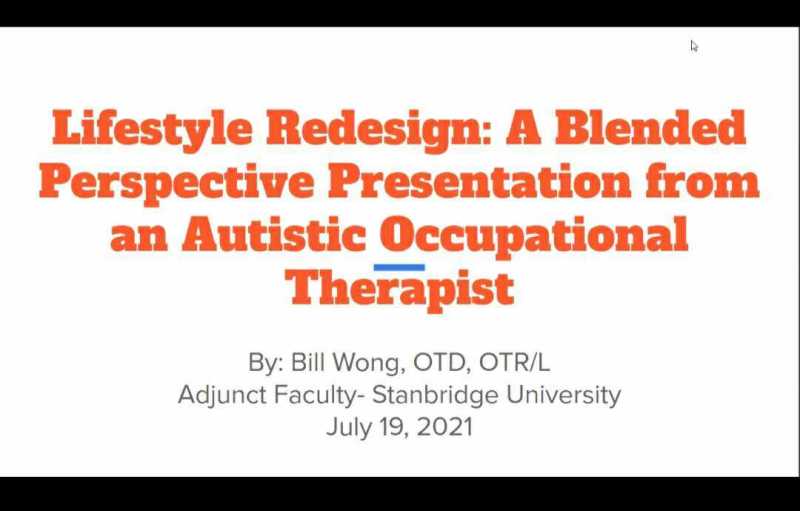Stanbridge University occupational therapy adjunct professor Bill Wong was studying pediatric therapy as a graduate student when he began noticing similarities between his course content on autistic children’s play behaviors and his own life experiences. Wong, who later received a formal diagnosis of autism, spoke about his experiences navigating higher education at a webinar hosted by the Stanford Neurodiversity Project’s Special Interest Group for Neurodiversity, on Monday.
Wong also offered professional career advice for neurodiverse students at the webinar, one of several speaker-events hosted by the group in the lead-up to Stanford’s Neurodiversity Summit in the fall.
Wong said that it took time “to adjust to a field like occupational therapy, which is very dynamic and going to be more creative.”
He added that he initially struggled to adapt to the clinical rotations while studying for his doctoral degree. Wong didn’t understand his academic struggles until he read about autistic children’s play behaviors in his pediatric therapy textbook, which motivated him to seek a formal diagnosis for autism.
“I came upon a chapter with a table that mentioned how autistic children play, and I found myself checking every box in terms of reflecting how I was playing with my peers when I was growing up,” Wong said. “It was then I brought up my concerns to my parents for the first time.”
At first, Wong said, his parents “didn’t believe” that he was autistic. Yet overwhelming support from his peers and teachers after his formal diagnosis in 2019, coupled with his own persistence, inspired him to continue studying for his degree, Wong said.
Regarding the career strategies he used to navigate the job market as an autistic adult, Wong said that someone’s first job is always hard — for both neurotypical and neurodiverse individuals.
Wong began practicing occupational therapy professionally in pediatrics, but left the job after three months upon realizing his childhood “struggles with play” made it difficult to play with children in a pediatric setting. Within the field of occupational therapy, he found opportunities to gear assessments toward autistic adults and create goals for himself.
Wong suggested resources for autistic adults and their families, encouraging neurodiverse adults interested in becoming occupational therapists to pursue their studies. He recommended finding a mentor in the occupational therapy program who understands neurodiversity.
“Find an autistic occupational therapist who can show you the ropes and explain what to expect,” Wong said. “There will be many bumps around the road, so finding a mentor early is very important.”
